Keywords: Infrastructure
There are more than 200 results, only the first 200 are displayed here.
-
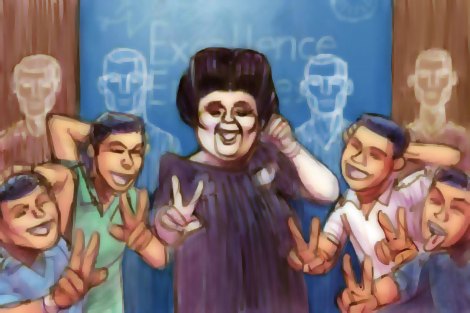
INTERNATIONAL
- Fatima Measham
- 29 August 2014
7 Comments
As the world marks the International Day of the Victims of Enforced Disappearance on August 30, new generations of Filipinos find it hard to grasp what it meant to express dissent when Ferdinand Marcos was president. Some assert that, compared to the current standard of governance and politics, life must have been better under Marcos. Such perceptions are validated when trusted institutions invite Imelda Marcos as guest of honour.
READ MORE 
-
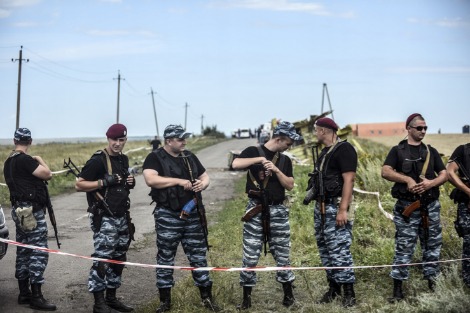
INTERNATIONAL
- Tony Kevin
- 11 August 2014
12 Comments
On Sunday morning Australian time, we learned that the destructive civil war raging in East Ukraine seemed to be drawing to a close, essentially on Kiev’s terms. It appears that the tense test of wills between Russia and the West generated by the crisis, which briefly last week risked a wider war, has ended in a tacit backdown by Moscow.
READ MORE 
-

AUSTRALIA
- Andra Jackson
- 04 August 2014
25 Comments
While the Federal Government continues to cast around for other Pacific nations and Cambodia to take in refugees held on Manus Island and Nauru, it has one ready solution right on its own doorstep. It is a place that has been calling out for help to counter its falling population and its prolonged economic crisis. It is an Australian territory and one that is already receiving Australia's financial support.
READ MORE 
-

ECONOMICS
- Brian Toohey
- 11 June 2014
15 Comments
The superannuation industry inhabits a cosseted world in which the money pours in thanks to a combination of government compulsion and tax concessions. The foundations of this empire are criticised for how the tax concessions create an expensive form of upper class welfare, and for the harmful effect of compulsory super's artificial expansion of the finance sector. The Abbott Government shows scant concern about either aspect.
READ MORE 
-
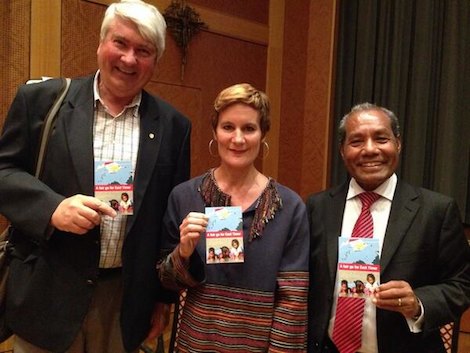
AUSTRALIA
- Frank Brennan
- 21 May 2014
10 Comments
In 2006 Australia and Timor Leste hastily signed the Treaty on Certain Maritime Arrangements in the Timor Sea (CMATS) at a time of considerable political instability in Timor. After last year's revelation of evidence of Australian spying on the Timorese during the negotiation of CMATS, the Timorese decided to challenge its validity, and in March this year they had a spectacular win in the International Court of Justice that caused great embarrassment to Australia.
READ MORE 
-
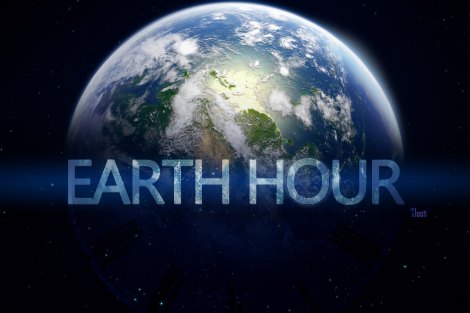
ENVIRONMENT
- Megan Graham
- 02 April 2014
3 Comments
Just a few days after we marked the annual observance of Earth Hour, the UN Intergovernmental Panel on Climate Change released its latest report, emphasising the likelihood of an increase in extreme and irreversible damage. In light of this, the fact that we deem Earth Hour to even be necessary seems akin to prompting a dog to notice its kennel is on fire. Unless the dog is in very bad health, it would do what it needs to do to save itself.
READ MORE 
-

INTERNATIONAL
- Michael McVeigh
- 25 March 2014
6 Comments
The Olympics and World Cup were once seen as a triumph of corporate and athletic enterprise, but today we count the cost. Previous events left countries with decaying venues and huge bills. Government funds line the pockets of corporations but do little for local industry. The Olympics have caused the evictions of more than two million people over the past two decades. It's time to re-think what these events are actually trying to achieve.
READ MORE 
-

ECONOMICS
- David James
- 12 March 2014
10 Comments
Economics is full of circular arguments. The Government is on the one hand arguing — most notably with the SPC Ardmona case, the exit of the car manufacturers and Qantas — that it will not get involved in supporting Australia's industry base. But then it argues that its policies will boost Australia's industry base. Lower unemployment will inevitably follow. For the first time ever it is apparently possible to have it both ways.
READ MORE 
-

AUSTRALIA
- Fatima Measham
- 10 March 2014
19 Comments
After more than a decade of refugee advocacy, campaigns still cater to small 'l' liberals and progressives. They are of course critical to consolidating support for asylum seekers and sustaining political pressure. Yet the debate has become so polarised that it would seem as if the left has a monopoly on compassion. This is a serious campaign problem because it alienates those who might otherwise be allies.
READ MORE 
-

ENVIRONMENT
- Greg Foyster
- 10 February 2014
23 Comments
Climate change has loaded the dice towards hotter days and more frequent heat spells. Heatwaves are only going to get worse, and air conditioning isn't the godsend it seems. We need to start retrofitting our cities, suburbs and homes to withstand the sweltering summers to come. Any new houses that perform poorly in the heat are going to be a tremendous burden on the next generation.
READ MORE 
-
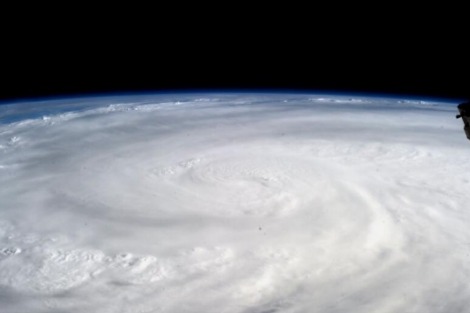
INTERNATIONAL
- Fatima Measham
- 17 January 2014
1 Comment
I may have gotten extremely sweary on social media. Part of it was due to gut-deep fear for people to whom I am personally connected, but also generally for a country that runs in my veins. The other part of it was fury that the growing reality of extreme weather events is still being characterised as natural by climate change sceptics who have the luxury of speculating and refuting links outright.
READ MORE 
-
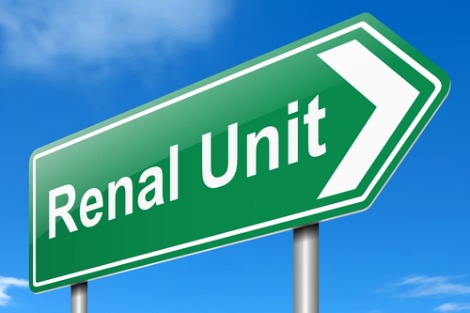
AUSTRALIA
- John Adams
- 15 January 2014
3 Comments
Kiwirrkurra is 700km of bad roads west of Alice Springs. Renal failure forces many Indigenous community elders from important roles such as presiding over ceremonies and passing down knowledge to future generations. Many choose not to make the long journey into town for dialysis, seeing life away from country and family to be a fate worse than death.
READ MORE 